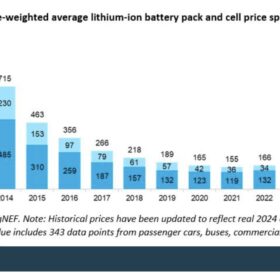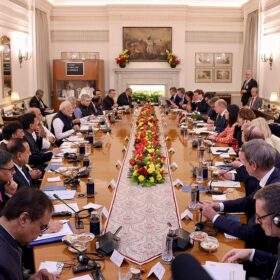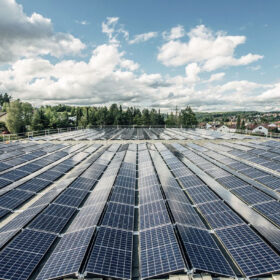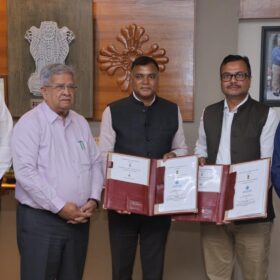US-China tariff negotiations and impacts
Although the suspension of the 24% tariff under Section 301 sends a signal of easing, the retention of the full 10% under Section 201 and the average 83% anti-dumping/countervailing duties means that Chinese solar PV exports to the US still face a combined tax rate of nearly 200%.
The opportunity for Indian solar firms amid U.S.-China tariff war
While the tariff war between the U.S. and China presents challenges to global trade stability, it also opens up opportunities for Indian solar firms. Through strategic alignment, domestic policy support, and favorable international positioning, India stands to strengthen its role in the global clean energy supply chain.
U.S. Commerce Department slaps unexpectedly high tariffs on solar imports
Coalition trade lawyer says the U.S. Department of Commerce’s final tariffs on solar cells and modules from Cambodia, Malaysia, Thailand and Vietnam are among the highest rates he’s ever seen.
Myanmar earthquake disrupts solar wafer production, global supply chain
The recent 7.7-magnitude earthquake in Myanmar has disrupted solar wafer production in western China, where about 50% of the country’s wafer capacity is concentrated. Major manufacturers have suspended operations due to equipment failures, raising concerns over supply shortages and higher global solar prices.
Indian heavy industries present 20 GW open access solar opportunity
A new report by Ember finds that steel, cement, and aluminium industries can profitably integrate 20 GW of solar power to run their operations.
Accelerating pumped storage development in India
A white paper by EDF outlines the key challenges hindering pumped storage project (PSP) growth as planned by Government of India and provides strategic recommendations to improve project viability, attract private sector investment, and create a supportive regulatory and financial framework for the rapid development of PSP in India.
How Gujarat is balancing industrial and environmental goals
Gujarat’s commitment to balancing industrial growth with environmental sustainability is a model for other states to follow. By harnessing solar energy, advancing green hydrogen production, and promoting energy storage technologies, the state is building a robust framework for a sustainable future.
BNEF: Lithium-ion battery pack prices drop to record low of $115/kWh
Battery prices continue to tumble on the back of lower metal costs and increased scale, squeezing margins for manufacturers. Further price declines are expected over the next decade.
India, Germany release joint roadmap for green hydrogen
The Indo-German Green Hydrogen Roadmap outlines key strategies to encourage private sector investment, promote green hydrogen trade and export, and facilitate the exchange of information, particularly around challenging hard-to-abate sectors and certification standards.
Navigating solar panel supply challenges through digitalization
High interest rates, excess warehouse inventory, and falling component prices have created a perfect storm for solar distributors since October 2023. BayWa re Solar Trade CEO Frank Jessel explains how the industry can embrace true digitalization to better navigate this volatility.















